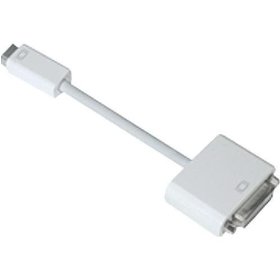Zalman Stereo: Difference between revisions
| (3 intermediate revisions by the same user not shown) | |||
| Line 1: | Line 1: | ||
[[Image:a_zalman_zm_m220w__2d_35_pic.jpg|200px|thumb|right|3d lcd]] | [[Image:a_zalman_zm_m220w__2d_35_pic.jpg|200px|thumb|right|3d lcd]] | ||
= Zalman LCD Stereo | = [http://en.wikipedia.org/wiki/Zalman#Monitors Zalman] LCD Stereo = | ||
This Stereo mode works with cheap polarization glasses (the same as those you wear in a cinema when watching 3D movies like "Avatar") and requires a special monitor which has alternatingly polarized horizontal lines. If e.g. the odd lines of the monitor display the picture for the left eye, and the even lines display the picture for the right eye, the brain stitches the images together which results in the impression of a 3D scene. See also http://en.wikipedia.org/wiki/Polarized_3D_system. | |||
The | The first viable LCD monitor for stereographics display is made by Zalman and costs about $300: [http://www.zalman.co.kr/eng/product/product_read.asp?idx=219 Zalman ZM-M220W]. Alternative manufacturers of polarization monitors are LG ("cinema 3D"), Philips ("easy 3D"), Toshiba ("3D natural") and Vizio ("3D"). Specifically the LG D2342P was [https://www.jiscmail.ac.uk/cgi-bin/webadmin?A2=CCP4BB;f51a7820.1506 reported] on CCP4BB to work well with coot and PyMOL in stereo mode. | ||
The attributes for the Zalman M220W monitor have been tested and [http://www.pymolwiki.org/index.php/Stereo_3D_Display_Options#One_Piece_Multi-layer_LCD_Displays described rather extensively by Warren DeLano] on the PyMOL site. Please read it for important details and suggested purchasing sources. | |||
Alternative manufacturers of polarization monitors are LG ("cinema 3D"), Philips ("easy 3Doshiba ("3D natural") and Vizio ("3D"). Specifically the LG D2342P was [https://www.jiscmail.ac.uk/cgi-bin/webadmin?A2=CCP4BB;f51a7820.1506 reported] on CCP4BB to work well with coot and PyMol in stereo mode. | |||
The following describes specifically how to get this to work with coot on Mac OS X, but the instructions should be generalizable to linux and Windoze. The beauty of this is that it is platform-independent and apparently works with pretty much any hardware (PC, mac, etc) and operating system. | The following describes specifically how to get this to work with coot on Mac OS X, but the instructions should be generalizable to linux and Windoze. The beauty of this is that it is platform-independent and apparently works with pretty much any hardware (PC, mac, etc) and operating system. | ||
| Line 23: | Line 25: | ||
Use the Draw > Stereo menu to select Zalman Stereo. | Use the Draw > Stereo menu to select Zalman Stereo. | ||
== | == Useful buttons == | ||
Customize your toolbar (the bar directly above the graphics window)! By default this only has the "Display Manager" button. Do this by right-clicking an empty part of that toolbar and then "Manage buttons (add/delete button)". There, select "Zalman Stereo/mono" and "Swap Stereo". | |||
Latest revision as of 18:54, 10 June 2015

Zalman LCD Stereo
This Stereo mode works with cheap polarization glasses (the same as those you wear in a cinema when watching 3D movies like "Avatar") and requires a special monitor which has alternatingly polarized horizontal lines. If e.g. the odd lines of the monitor display the picture for the left eye, and the even lines display the picture for the right eye, the brain stitches the images together which results in the impression of a 3D scene. See also http://en.wikipedia.org/wiki/Polarized_3D_system.
The first viable LCD monitor for stereographics display is made by Zalman and costs about $300: Zalman ZM-M220W. Alternative manufacturers of polarization monitors are LG ("cinema 3D"), Philips ("easy 3D"), Toshiba ("3D natural") and Vizio ("3D"). Specifically the LG D2342P was reported on CCP4BB to work well with coot and PyMOL in stereo mode.
The attributes for the Zalman M220W monitor have been tested and described rather extensively by Warren DeLano on the PyMOL site. Please read it for important details and suggested purchasing sources.
Alternative manufacturers of polarization monitors are LG ("cinema 3D"), Philips ("easy 3Doshiba ("3D natural") and Vizio ("3D"). Specifically the LG D2342P was reported on CCP4BB to work well with coot and PyMol in stereo mode.
The following describes specifically how to get this to work with coot on Mac OS X, but the instructions should be generalizable to linux and Windoze. The beauty of this is that it is platform-independent and apparently works with pretty much any hardware (PC, mac, etc) and operating system.
Setting it up
The monitor comes with both a VGA and a DVI cable. If at all possible, use the DVI cable. Apple users will need to purchase an adaptor like the one pictured below:
Plug in all the cables and verify the monitor is working. To get the stereo display to work, it is imperative that you turn display mirroring off. I placed the monitor to the left of my laptop, which required moving things around in the Display System Preferences. I also dragged the menu bar over to the external monitor to make in the primary monitor. This isn't so important for coot, whose menu is attached to the X11 window, but OS X pymol will drive you nuts if you have the menu on a separate monitor.
Invoking Zalman Stereo mode in COOT
Use the Draw > Stereo menu to select Zalman Stereo.
Useful buttons
Customize your toolbar (the bar directly above the graphics window)! By default this only has the "Display Manager" button. Do this by right-clicking an empty part of that toolbar and then "Manage buttons (add/delete button)". There, select "Zalman Stereo/mono" and "Swap Stereo".
